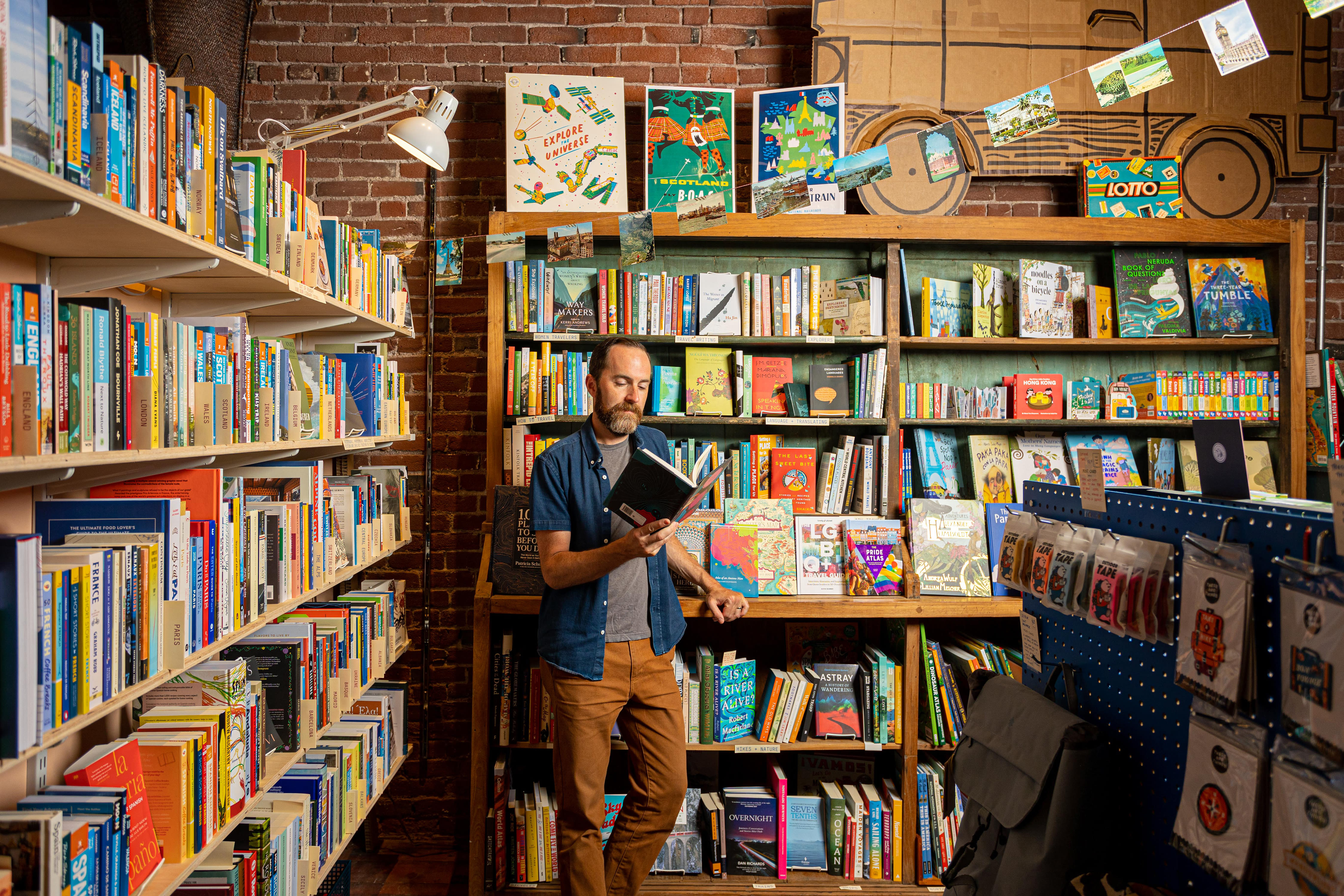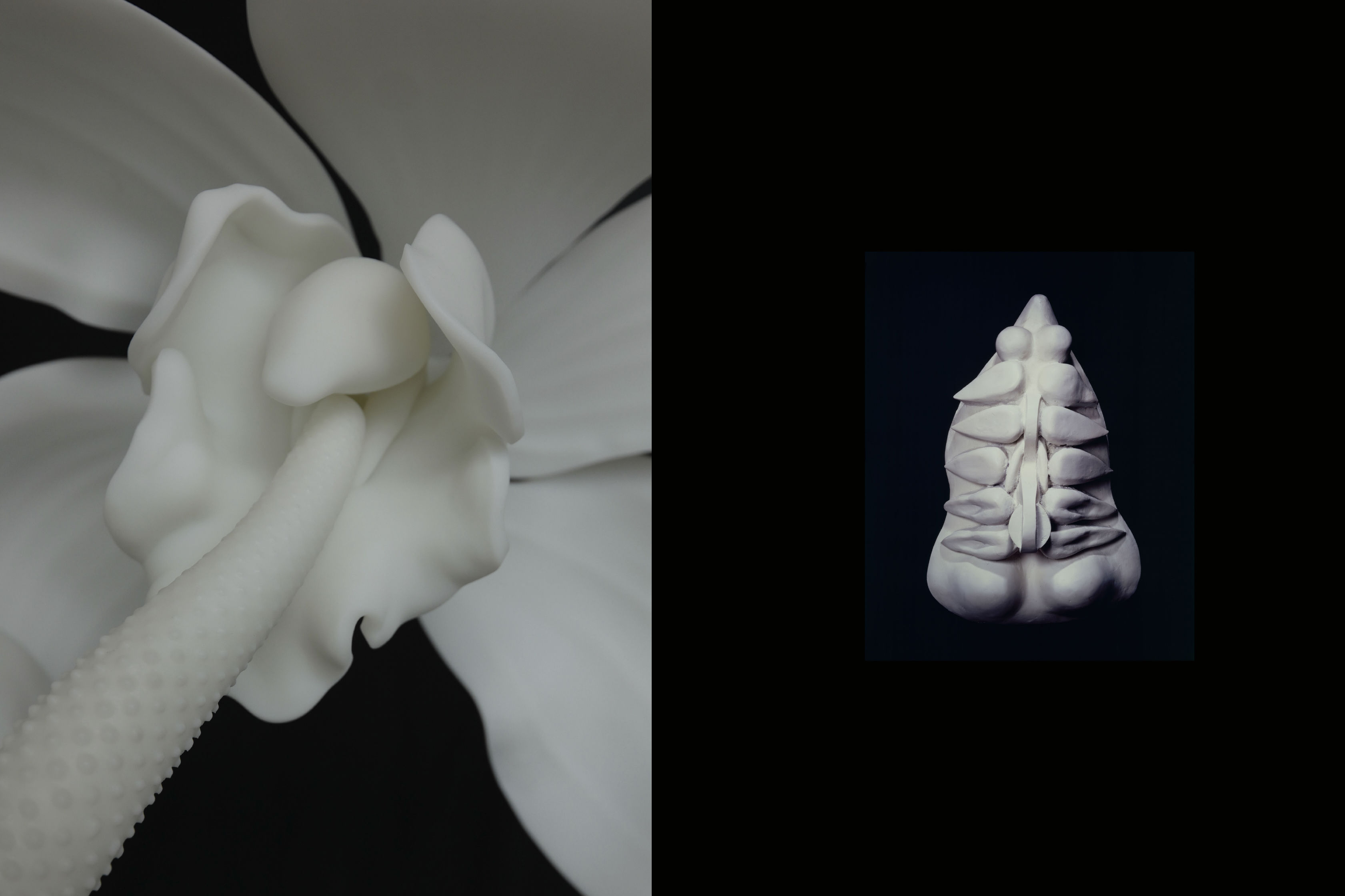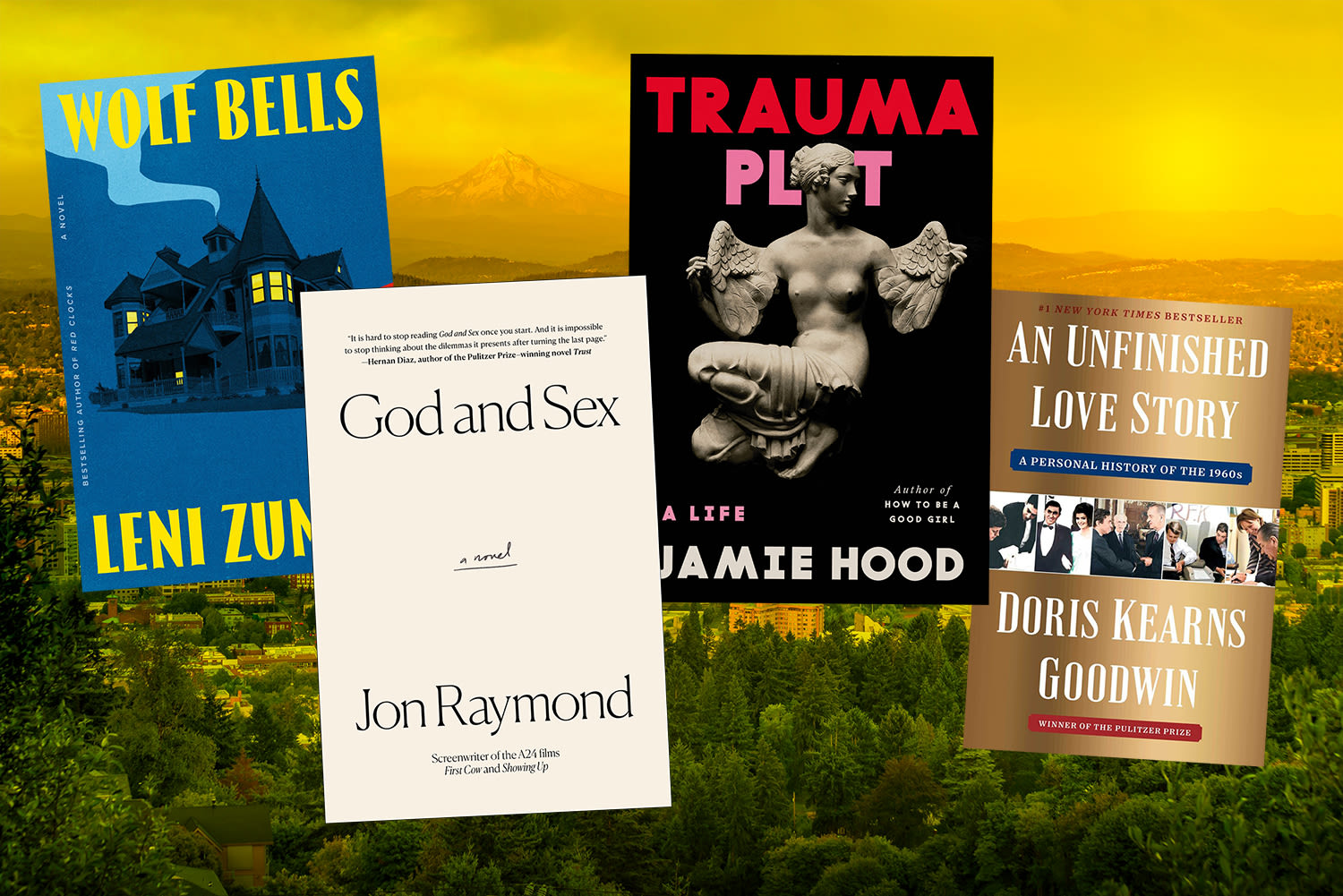Portland's New Boutique Bookstores
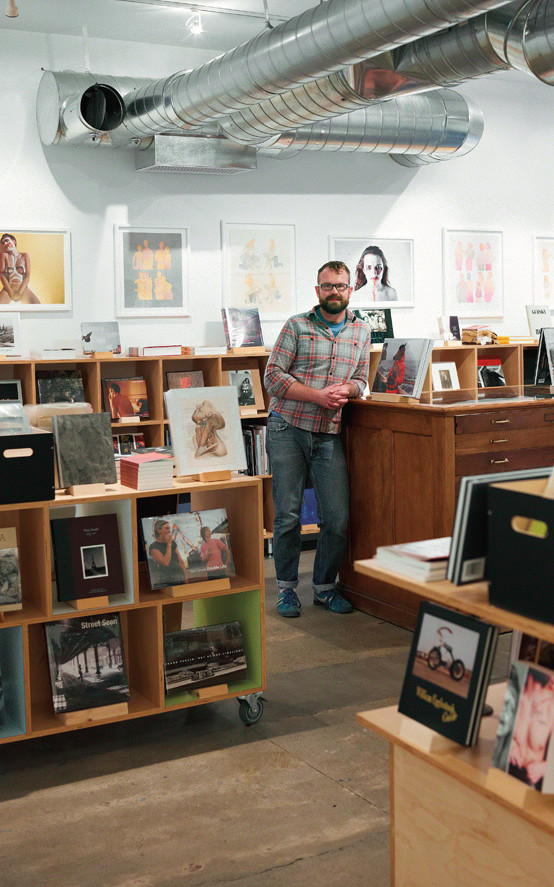
Ampersand owner Myles Haselhorst among his collection of contemporary photography books and vintage photos
Image: Stuart Mullenberg
On a recent Last Thursday, arts sojourners venturing into a tiny Alberta Street boutique encountered an unlikely musical delight: the Shins. After playing a show to almost 3,000 at Keller Auditorium the night before, singer-songwriter James Mercer and his quartet strummed an acoustic set to a bewildered crowd of dozens in the store’s small back courtyard.
As much as the evening grew out of Ampersand owner Myles Haselhorst’s budding friendship with Mercer, it also serenaded a quintessentially Portland-style reviving of an ancient trade: the selling of books. Mercer wanted to publish a volume of the band’s Instagram photos when a mutual friend introduced him to the store, which has created a number of artist books for its exhibitions. Haselhorst’s wife, Carey Schleicher-Haselhorst, designed the Shins’ book, and Ampersand coordinated its printing. The band performed to celebrate its release. “It was very much a community project,” says Haselhorst, “and this space is about community and how we share ideas.”
If we’re to believe publishing naysayers, the bookstore’s demise is nigh—a clumsy, corpulent casualty of the svelte e-reader and the all-encompassing Amazon. But a growing number of Portland specialty bookstores like Ampersand are writing a new chapter. From indie stalwart Reading Frenzy to newer print renegades like Monograph and Division Leap, they treat their highly curated selections of books as objects to be handled, relished, collected, and displayed—blurring the line between bookstore and gallery in deliciously unexpected and democratic ways.
“These specialty shops are providing a service beyond just access to books that you can now get anywhere 24 hours a day,” says Reading Frenzy owner Chloe Eudaly. “They appreciate the book as object, and printed matter as an art form. And they’re largely personality driven: people want to see the owners behind the counter, and they want our advice.”
You can skim selections from most of these stores, along with Portland’s growing number of independent presses, at an upcoming showcase called the Publication Fair, organized by indie bookmaker Publication Studio at the Ace’s Cleaners on December 16. But the experience these stores offer is as much outside the binding as inside.
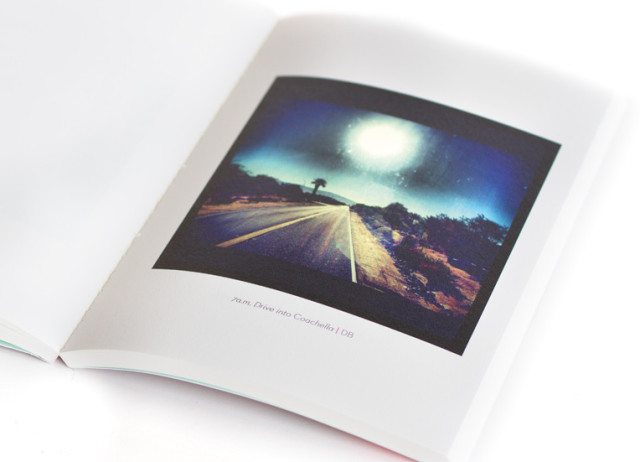
Ampersand designed and printed a book of Instagram photos by the Shins called Downtime. Shins front man James Mercer says it was “just a natural thing” to work with a local partner instead of a national publisher.
Image: Stuart Mullenberg
Ampersand’s clean, minimalist blend of modern display counters and vintage map cases showcases books of photography, ranging from famous artists like Cindy Sherman to relatively unknown locals; vintage photographs and print ephemera, from 1920s erotic pictures to 1950s illustrated car owner’s manuals; and monthly art exhibitions (before starting his set, Shins front man Mercer bought one of artist Dan Gluibizzi’s watercolors). Haselhorst, who first started buying and selling rare books to make money during college, opened Ampersand in 2008 in order to curate and share his own relationship with books and art, and to promote the value of collecting. “Nobody’s house looks like a white-walled gallery—chances are you have all sorts of rich cultural objects,” he says. “People come in and are very inspired, and being able to purchase a book allows them to take that home to their own space.”
For Portland, books have long meant Powell’s. But in addition to Ampersand, locals searching for inspiration in the printed form might consider one of these other curated labors of love, whose smaller sizes conceal the hours of rainy-day browsing that await inside.
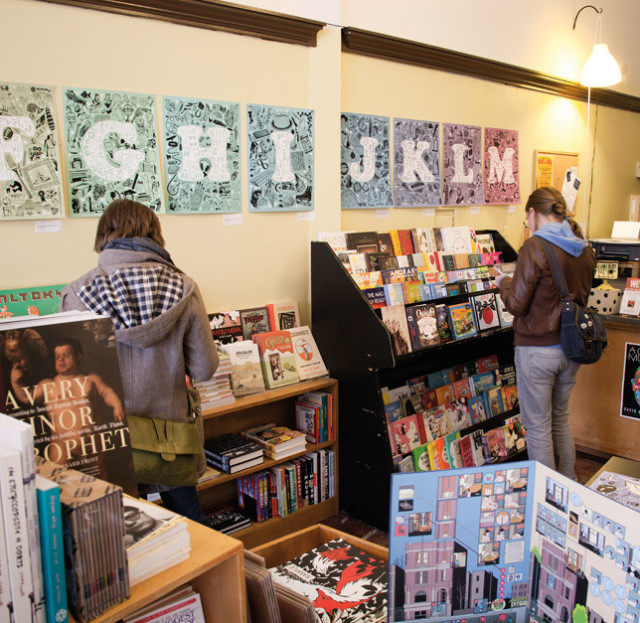
Reading Frenzy has evolved from stocking mostly handmade zines to a wide range of small-press books.
Image: Stuart Mullenberg
At age 18, Reading Frenzy is now the handsomely graying senior of Portland’s boutique-bookstore scene. Tucked half a block down SW Oak Street from the looming Powell’s, it is a single room of handpicked small-press and self-published titles focused on arts and culture that can be taken in with a quick turn of the eyes.
Before a then-24-year-old Eudaly opened her shop, specialty bookstores were mostly limited to politics (like the feminist In Other Words and far-left-leaning Laughing Horse) and sellers of rare volumes. Crazy about zines, Eudaly (who would go on to cofound the Independent Publishing Resource Center) was determined to create a job where she could be her own boss, and so was born Portland’s first zine shop. “When I opened the store, I very deliberately put the politics and current events section next to the smut section,” she recalls with a smile. “My personal statement, that I think pleasure is just as important as politics, was rebelling a little against my experience in the radical community.”
Eventually the smut section withered away (although one need step only two doors down to Countermedia for an encyclopedic selection of erotica), and the politics and current events now share shelf space with art and design titles, graphic novels, children’s books, and how-to and DIY guides. A staunch zine section remains. As Eudaly has watched the ’90s punks with their Xeroxed zines grow into adults with wide-ranging tastes, so too has she seen her customers diversify into all ages and backgrounds, including a growing number of international tourists. (Apparently the Reading Frenzy brand is big enough in Japan to fuel a souvenir craze.)
“Many of my most important relationships have been built through this store,” she says. “I’ll never make millions, but I haven’t been fired and I haven’t killed anyone, so I call that a success.”
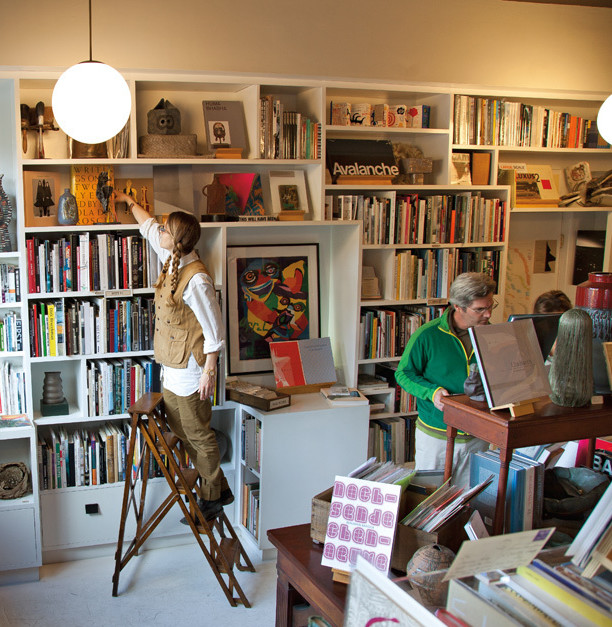
Blair Saxon-Hill adjusts the tightly packed treasures of her store, Monograph Bookwerks
Image: Stuart Mullenberg
In early 2010, Portland artists John Brodie and Blair Saxon-Hill, then a couple, wanted to collaborate on a project. With a list of possibilities in mind, they were walking through a snowstorm and came across a small vacant storefront off of NE Alberta Street. “It kind of found us,” says Brodie, who had similarly fallen in love with another building before coming up with a business for it: his crêpes-and-PBR bistro, Le Happy. “Portland didn’t really have a contemporary art bookstore that focused on painting and sculpture and design. As artists, we wanted to open the type of store we’d want to go to.”
After massively reworking the long-empty space, including building walls of shelving, the two filled it with new and rare books focused on painting, sculpture, architecture, graphic design, and art criticism. And between the books they hung provisional paintings and nestled contemporary ceramic and sculptural works, as well as print and printmaking ephemera, like antique letterpress type, all with an emphasis on surface and texture. The whole ensemble recalls a snazzier take on Mr. Coreander’s bookstore from The NeverEnding Story, where you never know what wonders you might find hidden amid its towering shelves. But unlike Mr. Coreander, who shooed young Bastian away, Brodie and Saxon-Hill have crafted their emporium to create conversations between artists, collectors, and neophytes.
“We can say, ‘Do you know about this artist?’ and pull their work off the shelf,” says Saxon-Hill. “And it’s a reciprocal relationship: customers do it for us all the time, too. It’s expanding the kind of engagement.” Their dedicated passion for the store has paid off in a dedicated clientele, ranging from students to decorated local artists, like architect Brad Cloepfil and filmmaker Todd Haynes.
“I’ve known John for years, so it’s a special privilege to see what a beautiful job he and Blair are doing,” Haynes says, explaining that he goes there for gifts but then guiltily ends up buying for himself instead. “It’s a truly curated art bookstore.”
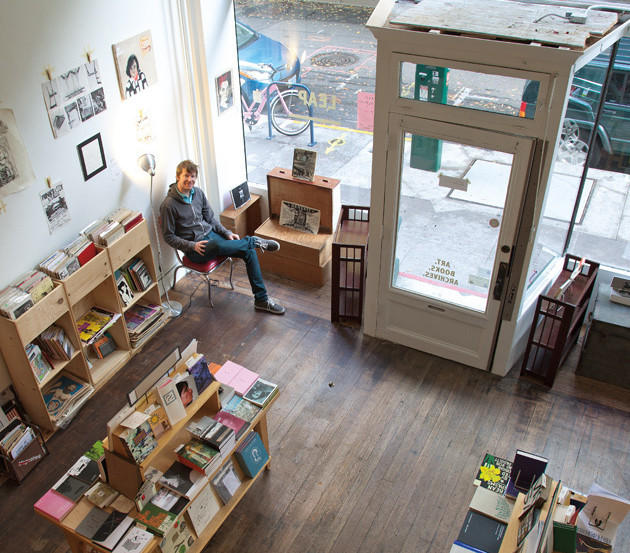
Division Leap co-owner Adam Davis sits in his funky, old-school Portland space
Image: Stuart Mullenberg
On a brisk October day, three visiting collectors frolic through Division Leap like children ransacking a toy store. “This is amazing,” says one, holding up a box of hand-printed cards, explaining that its maker “went through [Gertrude Stein’s poem] ‘Tender Buttons,’ and did these drawings.”
“When those last two copies are sold, it’s out of print,” says co-owner Adam Davis from his cluttered counter.
“I’ll take them,” says another. “Just say the California contingent put them out of print.”
While Ampersand and Monograph mix out-of-print items and antiques among their books, Division Leap makes them its focus. “You’re raised with this idea that culture goes through corporations—like to get a book published, you have to submit a manuscript in New York and go through official channels,” Davis says. “But as I started coming across all these unusual publications people had done on their own, I became fascinated by the idea that there was this whole secret history of people creating culture on their own terms.”
He’s still setting up the store that he opened in September with his wife, Kate Schaefer. With an old record player and makeshift, beat-up bookcases, it feels more like the bohemian Portland of the ’90s than the clean, style-obsessed Portland of today. Scattered across tables and shelves of limited-edition books of poetry and art sit print relics that offer glimpses of forgotten histories, like an original handbill for John Cage’s most famous work of silence, 4’33”, and a mimeographed book of protest chants cased in a sharp aluminum cover by German students during a 1988 uprising. “It was the first book ever designed as a weapon,” Davis says with excitement. He has a similarly impassioned story for every item in the store.
Reading Frenzy blew Davis’s mind when he first moved to Portland in 1996 to go to Reed College. After working for Powell’s and New York City’s Strand Book Store, and selling rare books out of his Harlem apartment, he returned to Portland to open his own shop, as fate would have it, around the corner from Eudaly’s small-press bastion. To Davis, the local roots of small-press and self-published works go past the Xerox machines of zines to the Mimeograph Revolution, a great technological democratizing of printed works. He says the movement was sparked in part by a conscientious objector camp in Waldport, Oregon, that made magazines and books of poetry during World War II.
“I want it to be a gallery and bookstore that is devoted to the history of independent publishing by artists and writers—and also to the future,” says Davis. “The book isn’t dead—it’s really corporate publishing that’s dead.”

